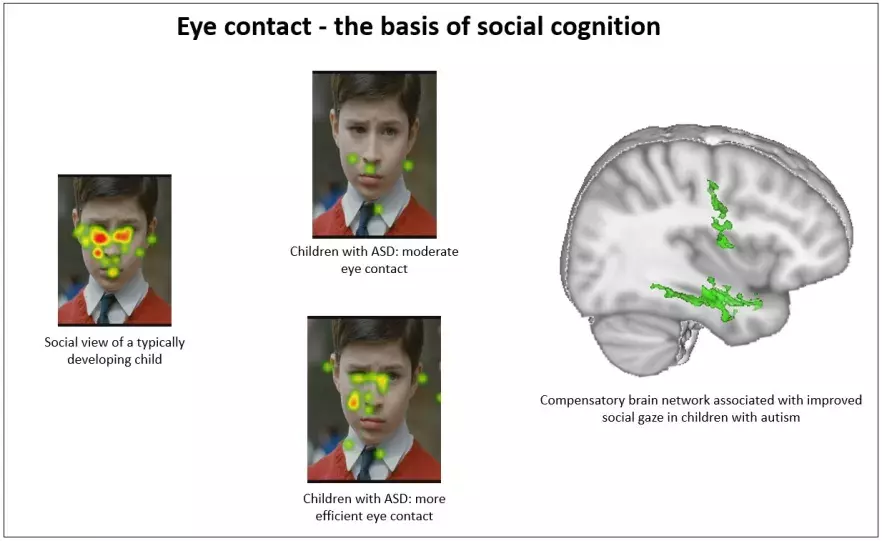Published on 30.07.2025
In children with autism spectrum disorders (ASD), deficits in social skills are a core feature. These manifest, for instance, by difficulty in making eye contact and lack of attention to eyes and faces. Eye gaze path can be assessed using eye-tracking: this highly innovative technique measures the movements and the fixations of a person's gaze. As an objective measurement, eye-tracking becomes a valuable tool for studying gaze behaviour, within the context of a disorder or as evaluation of interventions.
For the past 10 years the researchers Dr Ana Saitovitch, Pr Monica Zilbovicius and Pr Nathalie Boddaert have been using this technique at the Paediatric Radiology Department at Hôpital Necker-Enfants Malades, in association with Institut Imagine (Inserm, AP-HP, Université Paris Cité). In their recent study, they used eye-tracking to investigate the inter-individual variability of social skills in children with ASD, but also in comparison with neurotypical children. At the same time, they used MRI to investigate the microstructure of the brain's white matter in the same children, with the aim of correlating social skills and brain anatomy.
Their work allowed to describe a wide variability between individuals: when they watch social scenes, some children look more than others into the eyes of the characters. Importantly, even though children with ASD look less frequently into the eyes of characters compared to typically developing children, this significant inter-individual variability exists in both groups.
Their results also revealed a direct link between the better performances in children with ASD to perceive gaze and the amount of white matter fibers within a brain area linked to social processes. This correlation suggests the existence of a compensatory cerebral mechanism in children with ASD: a link between the acquisition of social skills and brain plasticity.
In children with ASD, social skills tend to be acquired and developed less spontaneously than in typically developing children. For the first time, this research presents data suggesting a possible brain compensation mechanism that would support the development of better social skills. This study reinforces the importance of early intervention in children with autism, as age has a major influence on brain plasticity. Learning support for children with ASD is therefore not only relevant, but above all effective, and could have an enormous societal and economic impact, facilitating the integration of individuals with ASD into society.
Corresponding autors :
Service de radiologie Pédiatrique, Hôpital Necker-Enfants malades : Dr Ana Saitovitch, Pr Nathalie Boddaert, Pr Monica Zilbovicius.

